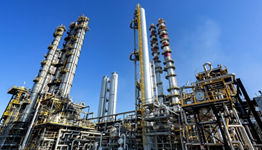We have implemented a decarbonisation policy in line with Eni strategy, aiming to achieve Carbon Neutrality by 2050*. Our commitment is embodied in a decarbonisation plan with specific emission reduction targets, including in the short/medium term, supported by decarbonisation levers and a solid dedicated governance framework.
* The Net Zero target is achieved when residual anthropogenic greenhouse gas emissions (GHG) are counterbalanced by the emissions removed from the atmosphere.









